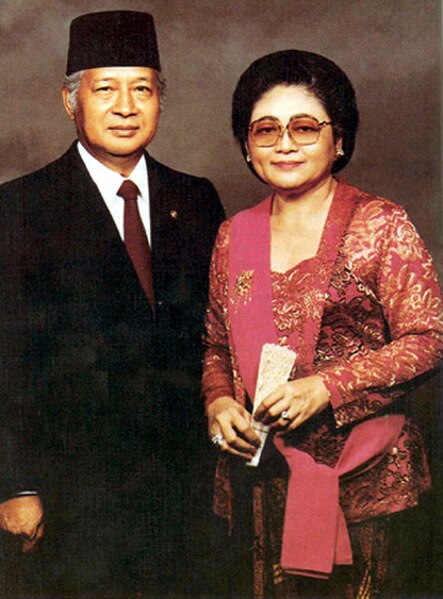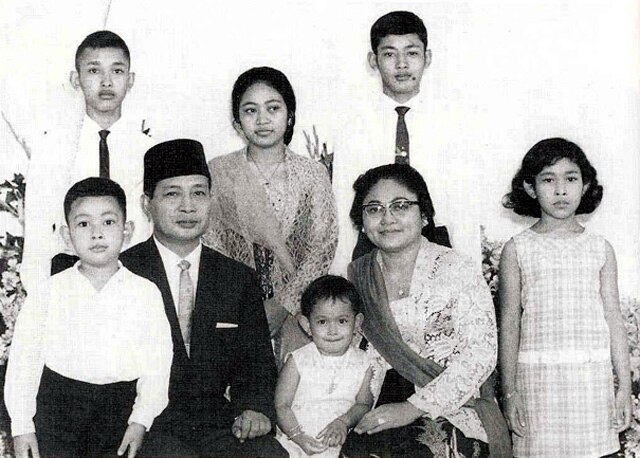The Order of Eleventh March, commonly referred to by its syllabic abbreviation Supersemar, was a document signed by the Indonesian President Sukarno on 11 March 1966, giving army commander Lt. Gen. Suharto authority to take whatever measures he "deemed necessary" to restore order to the chaotic situation during the Indonesian mass killings of 1965–66. The abbreviation "Supersemar" is also a play on the name of Semar, the mystic and powerful figure who commonly appears in Javanese mythology including wayang puppet shows. The invocation of Semar was presumably intended to help draw on Javanese mythology to lend support to Suharto's legitimacy during the period of the transition of authority from Sukarno to Suharto.
Show the first version
Show the second version
Signatures of Sukarno on the four versions
Suharto was an Indonesian military officer and politician, who served as the second and the longest serving President of Indonesia. Widely regarded as a military dictator by international observers, Suharto led Indonesia as an authoritarian regime from the fall of his predecessor Sukarno in 1967 until his resignation in 1998 following nationwide unrest. His 31-year dictatorship is considered one of the most brutal and corrupt of the 20th century, as he was central to the perpetration of mass killings against alleged communists, ethnic Chinese, irreligious people and trade unionists.
Official portrait, 1993
Lieutenant Colonel Suharto, c. 1947
Portrait of Suharto and Siti Hartinah, c. date unknown
Suharto with his wife and six children, c. 1967







